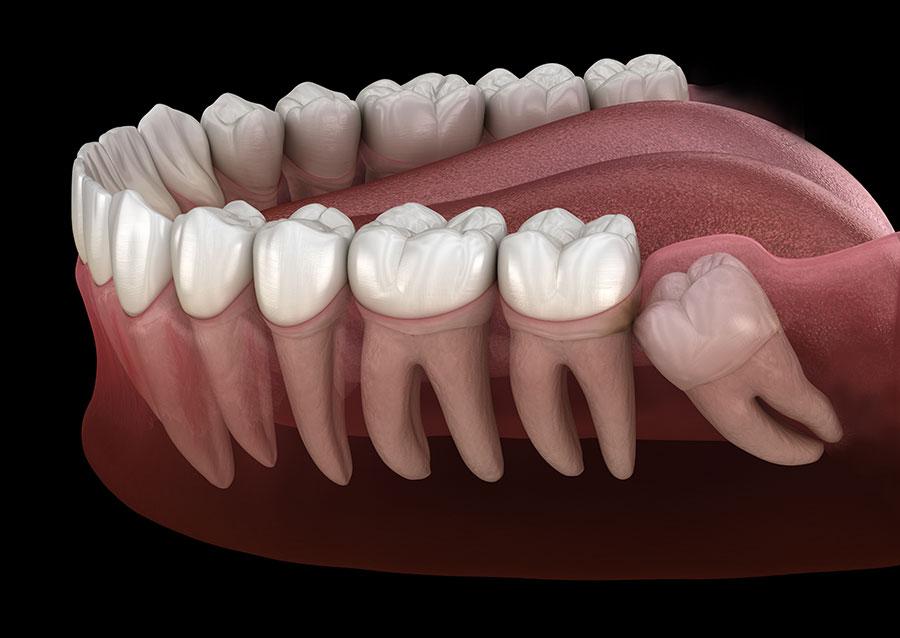Wisdom Teeth Removal
What are the Wisdom Teeth?
The third molars or "wisdom teeth" are the last teeth to develop and grow into the jaws as a patient reaches adulthood in their late teens. This typically does not leave much room for the third molars since the average adult does not have the space for all of these teeth to erupt in the mouth. Wisdom teeth often grow in sideways, remain trapped in bone, or put pressure on nearby teeth and cause injury or problems with alignment. If the third molars are partially erupted, the opening around the teeth can allow bacteria to seep in and cause an infection resulting in pain, swelling, and stiffness.

 What is an Impacted Wisdom Tooth?
What is an Impacted Wisdom Tooth?